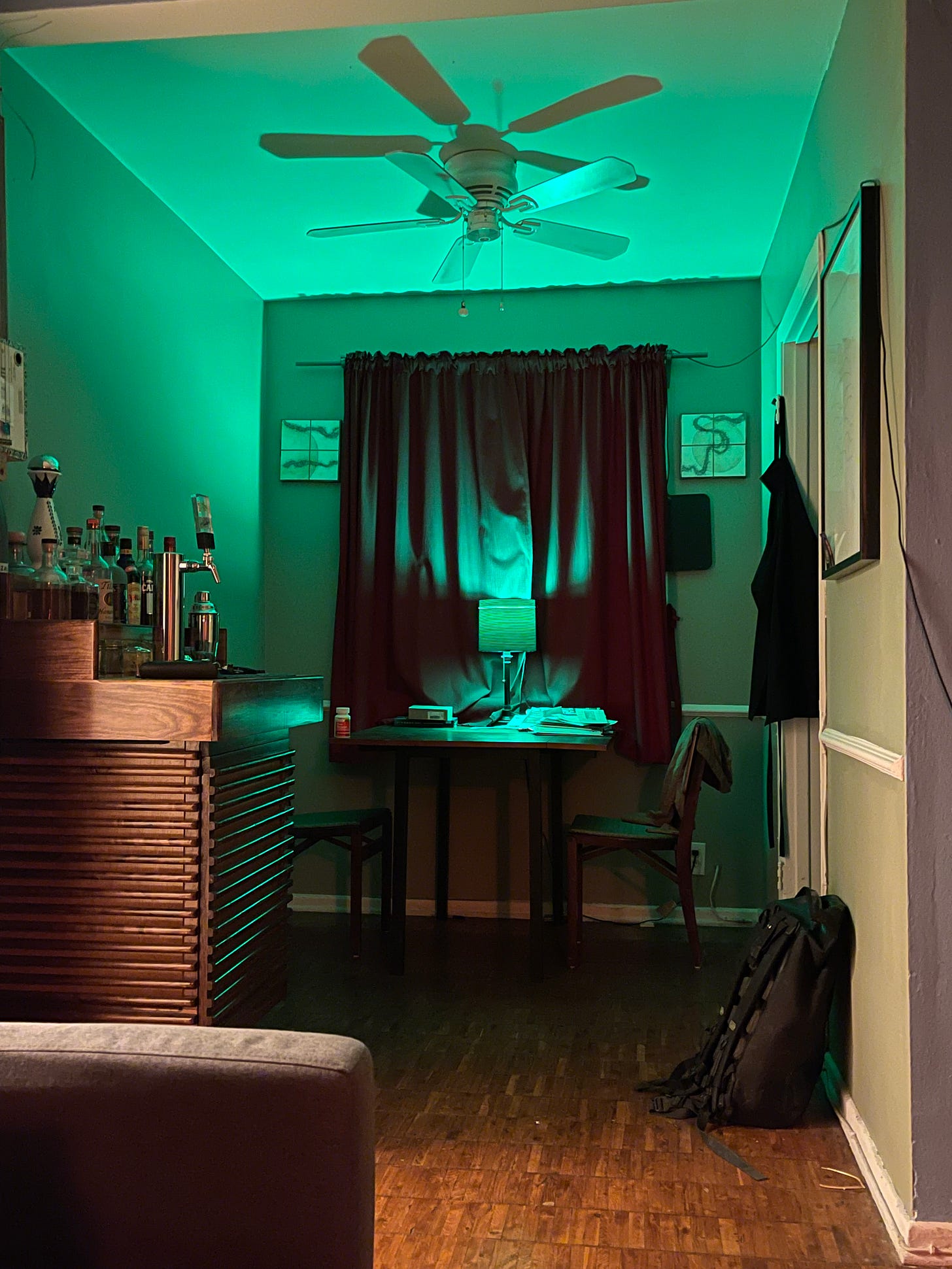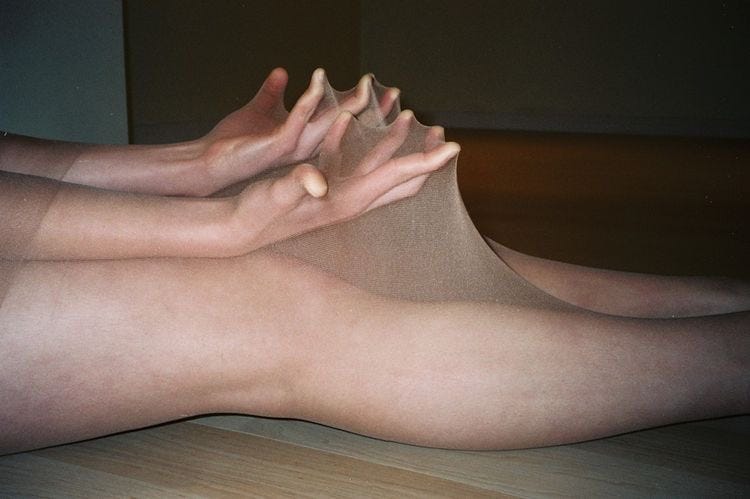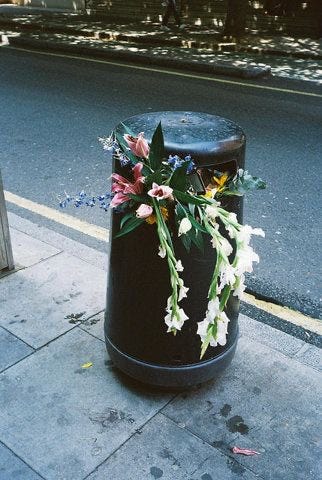A book is a way of living.
It takes place in time, and in space (but only thinly).
A book is a way of being waltzed through someone else’s life by standing on the shoes of an expert dancer.
When a book is working, it is exactly like watching a movie.
The thing in a book which delights most people is the thing that was smuggled from real life.
But the thing smuggled from real life cannot be situated within its true context—the fun is in feeling the texture of the real thing in contrast with the made and performed.
Choosing the real daisy in a field of plastic ones.
A book is a kind of device that gets stranger the longer you think about it.
For the writer, a book is a way of living through what has already happened and what can never happen at the same time.
For the reader, a book is a way of living through improvised postures, given costumes, given stage directions: BE here. STAND here. LOOK here.
Writing and reading are two ways of living which will never exactly meet each other. The reader and the writer set off from opposite ends of town in a blinding snowstorm, each walking straight down the only town in the street, and never find each other.
Some books lose their exchange value once you’ve read them once because they are full of mere information.
A rehearsal is not a great way to live all the time. Veteran readers are often the survivors of unhappy childhoods.
As a child, I narrated my own life in omniscient POV before I had any idea what that was. “She followed the children down the hall like a row of ducks.” I actually remember thinking this.
If you want to write a book, you should just do it. That’s the barbarous advice nobody ever gives.
I don’t trust people who rhapsodize about spending hours fixing their sentences. If your sentences take hours to fix, you should just delete them.
I likewise don’t trust people who go on and on about craft. Each book is a piece of organic matter subject to its own internal laws and temperatures.
The real craft of writing a novel is to listen very carefully for bad jokes, and take them out. The real craft of writing a novel is to listen very carefully for what you are afraid of writing and find a way to do it. The real craft of writing a novel is to cultivate the honesty that will let you delete things without worrying how long it will take to fix them.
Reading isn’t just looking, it is also listening. (Otherwise, all white space would mean the same thing.)
The real craft of writing a novel, or really anything, is to listen so closely to the world that you internalize the springy feeling of aliveness. Listen to as many poets as possible, as many records and jukeboxes and radio stations as possible, listen to people, listen to your body. Read rooms. Read trains. Read mountains. Read your toenails. Read the way your partner breathes in their sleep. Read your cats. Read as much silence as you can, withholding judgment as long as humanly possible.
You will not learn the right way to write from a book. But if you read books, they will rehearse you.
(Writing a book is also, strangely, a performance.)
Writing a book, you are making a room outside of time. So, make it carefully. Everyone who goes there is dying.
Crass, ordinary things are as important as salt and pepper.
Everyone is more tender than they will admit.







